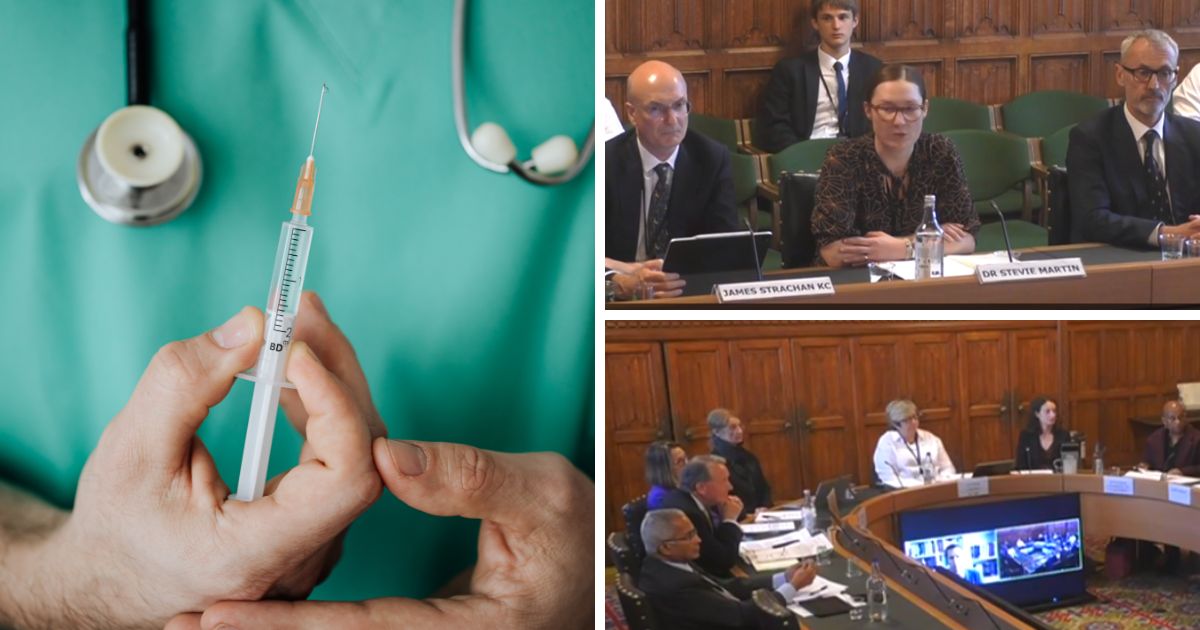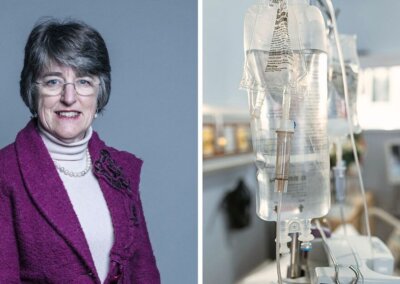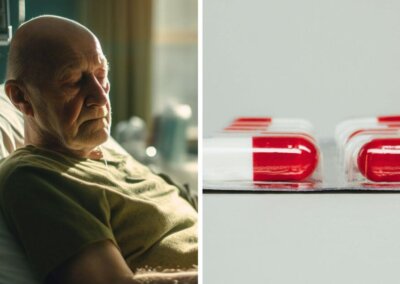Parliament’s influential Joint Committee on Human Rights (JCHR) met yesterday afternoon to consider the question of ‘assisted dying’ from a human rights perspective.
The Select Committee, which comprises members of both the House of Commons and House of Lords, heard oral evidence from four ‘expert’ panellists: Paul Bowen KC and James Strachan KC, barristers who have taken opposing sides in high-profile failed challenges to the UK law prohibiting assisted suicide, Dr Stevie Martin, a Cambridge law lecturer who has written a book arguing for the introduction of assisted suicide on human rights grounds, and Prof Richard Ekins, Professor of Law and Constitutional Government at Oxford University.
The hearing considered the implications of several different articles of the European Convention on Human Rights (ECHR) with regard to the current law and potential changes to the law.
UK’s ban on assisted suicide is compatible with the European Convention on Human Rights
Each member of the panel accepted that the UK’s current ban on assisted suicide and euthanasia is compatible with the ECHR, of which the foundational article, Article 2, the ‘Right to life’ states “Everyone’s right to life shall be protected by law. No one shall be deprived of his life intentionally”.
Prof Ekins expressed the view that allowing assisted suicide and euthanasia may even be in breach of Article 2, “properly understood”, and, criticising the judgement of the Carter case in Canada, which led to the legalisation of assisted suicide in the country, the Oxford legal professor emphasised how there is “clear evidence” of a slippery slope once assisted suicide or euthanasia are made legal. He earlier articulated a concern that allowing such practices would involve “crossing a major moral-legal threshold”.
The problematic nature of seeking to legalise assisted suicide with a limited scope and sufficient safeguards along the lines proposed by Lord Falconer and Baroness Meacher was made apparent time and again at the JCHR hearing.
Difficulties around determining whether a person with a terminal illness has six months or less to live
Even with a narrow terminal illness scope, James Strachan reminded Committee members how difficult is for doctors to diagnose if a patient has, say, only six months left to live, a necessary condition of eligibility for assisted suicide in Oregon for example.
Paul Bowen, who represented Tony Nicklinson and Debbie Purdy (neither of whom would have met a terminal illness criteria for an assisted death) in their unsuccessful attempts to ask the courts to permit assisted suicide, pointed out the problem of restricting access to such practices for the non-terminally ill since human rights are not dependent on how long someone has left to live. He argued that if someone were deemed to be experiencing “unbearable suffering”, their human rights ought to let them be allowed access to assisted suicide provisions.
Patients with colostomy bags and insulin injections could be deemed to be ‘suffering unbearably’ in assessments of assisted suicide eligibility
Dr Martin, who has written in support of assisted suicide for non-terminally ill patients, further highlighted the potential implications if those experiencing unbearable suffering were allowed to be helped to end their lives. She explained that in jurisdictions where assisted suicide has been legalised, defining “unbearable suffering” has had to take into account differences between people, observing how having to use a colostomy bag might be “unacceptable to the patient” in some cases, as also might be daily insulin injections for a person with diabetes. Oregon, visited earlier this year by members of the HSCSC, has already granted access to assisted suicide in cases of diabetes.
Prof Ekins responded to Mr Bowen and Dr Martin’s comments by observing that such a discussion demonstrated “how difficult it is to legislate responsibly” once assisted suicide is introduced, and warned that questions over eligibility soon become a subjective assessment of whether someone thinks their life is worth living.
Enlarging the access to assisted suicide from the terminally ill to include those deemed to be suffering unbearably was not the only conceivable expansion in scope that was brought to the attention of the Committee. James Strachan explained that if assisted suicide were permitted, Article 14 of the ECHR, which protects against discrimination, could be engaged leading to a “slippery slope” of ever-increasing expansion. Mr Strachan warned that to legalise the practice at all would therefore be “crossing the Rubicon”.
Euthanasia for children
Prof Ekins outlined how such legislation might evolve further by pointing out that children have legal human rights protections too, so if assisted suicide were to be legalised, there could be challenges on the basis of anti-discrimination laws to any prohibition against children being eligible to access it. The Netherlands has recently announced plans to join Belgium in permitting child euthanasia for all ages and a Parliamentary committee in Canada has also recommended doing so.
Caroline Johnson MP, who sits on both the JCHR and the HSCSC, described the thought of children being included within assisted suicide provisions as “absolutely horrific”.
Dr Johnson, who still works as a consultant paediatrician, also observed how easily the legalisation of assisted suicide (where a person is assisted to take their own life) could lead to the legalisation of euthanasia (whereby a third party ends the life of an individual) on human rights grounds, if it were argued that a prohibition on euthanasia were ruled to be discriminatory against those without the physical capacity to assist their own deaths.
Lord Alton, a member of the JCHR, observed that far from a ban on assisted suicide being discriminatory, permitting the practice would itself likely discriminate against vulnerable groups such as people with disabilities or mental illness, as has been the case elsewhere.
In summary, Prof Ekins emphasised that the right to life, Article 2, is the primary right when it comes to the consideration of assisted suicide, and so should not be easily brushed aside.
Catherine Robinson, spokesperson for Right To Life UK, commented “Prof Ekins is correct to emphasise that the right to life ought to be protected vigorously by the courts. Despite the attempts by advocates of assisted suicide to argue that a law could be introduced with a narrow scope in the UK, the JCHR evidence session blows out of the water the idea that assisted suicide could be introduced with reliable safeguards in the UK”.
“Two prominent witnesses argued in favour of assisted suicide for the non-terminally ill and the hearing demonstrated that once the practice is permitted, the Rubicon would have been crossed and, as has happened elsewhere, the law would inevitably expand to include vulnerable groups, such as people with diabetes, people with disabilities and even children. It is vitally important, therefore, that the current prohibition is upheld”.











